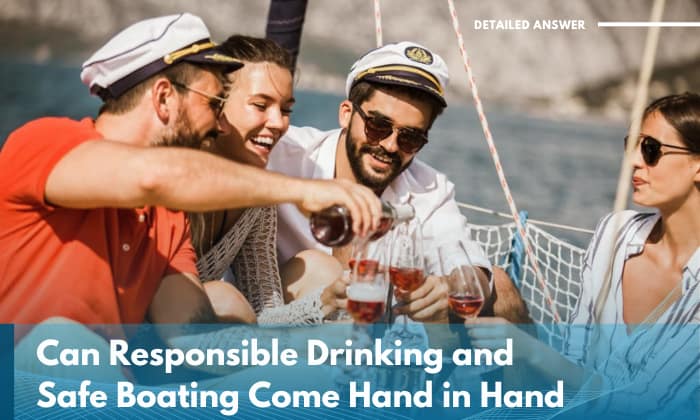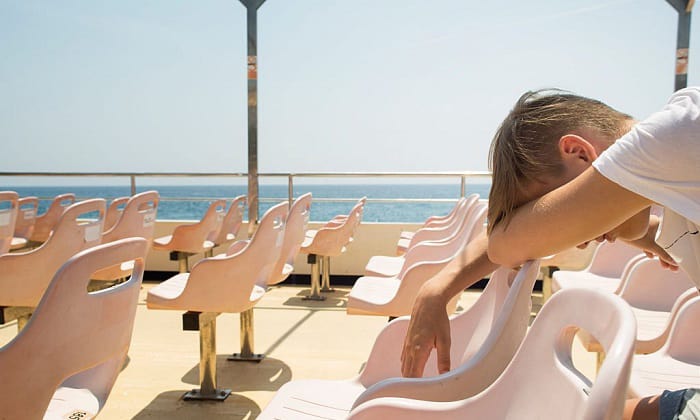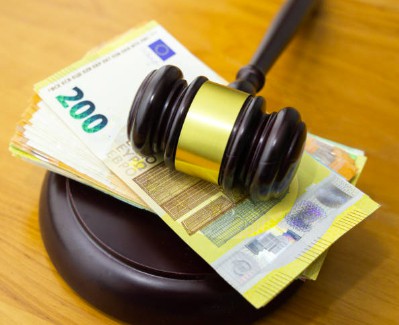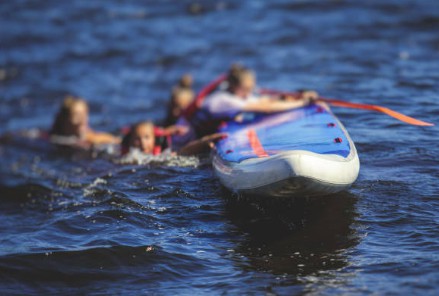Alcohol is the life of the party and many will find it boring to be without it. However, driving under the influence (DUI) is a big problem for operating any vehicle. What amount of alcohol consumed while boating is dangerous?
A BAC of 0.08%g/dL is the legal limit for boating, while recognizable effects begin with a BAC of just 0.02%g/dL. However, there’s more to safety than just what’s stated in the laws.
Table of Contents
Drinking Alcohol and Safe Boating
Just like DUI, boating under the influence (BUI) is a dangerous thing to do. Because of the risks involved, doing it can get you into trouble with the law. 0.08%g/dL is the legal limit in most US states but what is the safe limit when boating?
For your information, even small amounts of alcohol affect the body and the only truly safe BAC level is zero. BAC or blood alcohol concentration is the measurement of alcohol in the bloodstream and is used to track how much alcohol is in someone’s body.
Any alcohol in your body increases the risk of operating a boat and the danger increases as more is consumed. Even responsible drinking is not enough when operating a boat.
One standard drink of alcohol consumed while boating is equivalent to one bottle of beer, 5 ounces of wine, or a shot of hard liquor. For every standard drink, your body will need one hour to process the alcohol content in it and allow you to get back into gear.
Additionally, it is considered dangerous to drink more than two standard drinks in the span of a few hours. But how does alcohol affect you when you are operating a boat? First, let’s understand how our body reacts depending on the amount of alcohol consumed.
Alcohol Levels and Its Effects
| BAC Level | Common Symptoms and Effects |
| 0.02 | The threshold for recognizable signs of intoxication. Feelings of relaxation and warmth are introduced and people may be prone to making irregular choices. |
| 0.05 | A person may become bolder or more emotional. There may be some loss in muscle control and effects on your perception. |
| 0.08 | Results in some loss of coordination, reaction, and balance along with speech difficulty. This is the legal limit for operating vehicles. |
| 0.10 | Slowed thinking and reaction along with poor body control makes this level dangerous for driving and boating. Even reasoning will be severely impacted. |
| 0.15 | May result in extreme balance issues where a person may stumble and even fall. A BAC of 0.20 may cause confusion and disorientation while reaching 0.30 affects comprehension and even consciousness. |
| 0.40 | This level of BAC is potentially fatal resulting from cardiac or pulmonary arrest. |
The effects of alcohol on the body changes depending on how high BAC is; these effects compound with one another leading to more difficulties as alcohol levels rise. However, consistently tracking the results of BAC levels varies per person, so we can only use these as a guide.
The effects of alcohol change depending on different factors, such as gender and body size. However, other factors such as genetics may also come into play, and even metabolism makes standardizing alcohol effects more difficult.
One drink can bring BAC levels up to 0.04%, and it decreases by an estimated 0.015% for every hour passed. This means you can take a 2 to 3-hour rest and get back to boating safely if you limit yourself to one standard drink.
Drinking on a boat is also more dangerous because the effects of alcohol can be magnified by certain factors on the water. Boating stressors such as sunlight, movement, and the wind can exacerbate the effects of alcohol and make them worse.
Facts About Drinking on a Boat
Alcohol consumption is the cause of most boating fatalities while almost half of all boating accidents involve people who consumed a certain amount. From 2020, deaths increased by 25% from previous numbers, and alcohol is consistent as a primary factor.
Let’s look at percentages relating to the consumption of substances leading to fatalities to make a comparison. Alcohol was recognized as the primary factor for 18% of all deadly incidents in 2020 compared to drug use which contributed to 1% of all recorded incidents.
Effects of Alcohol While Boating
Alcohol can bring about different changes to the body. Here are some effects of alcohol consumption which can become a problem when boating.
- Reduced alertness and impaired reaction
- Affected balance
- Distorted perception
- Increased feeling of warmth
Lowered reaction and alertness affect our chances of survival in dire situations. It means you won’t be able to act as quickly during emergencies.
Distorted perception means the inability to recognize signals, and alcohol reduces the ability to see what colors are important when meeting other vessels. Because of the nature of boating and how difficult it is to get help, any of these may be worse compared to its effect while on land.
Feeling warmer after a sip is a huge benefit of drinking alcohol, but this is something that may become a problem while boating. Not being able to tell how cold the water is can spell trouble.
Difficulty standing is another danger, and this is a bigger problem on a boat because it can also cause someone to fall overboard. A person who is significantly intoxicated may also have trouble swimming.
Consequences of Drinking While Boating
Now you have a better idea of the effect on the body should you have a drink while boating. However, knowing these risks may not be enough so allow us to explicitly state what things could be in store for someone daredevil enough to go through with it.
1. Fines and Penalties
Fines can range from $1000 up to $5000 with possible jail time. Penalties may also include mandatory participation in substance abuse programs and even a person’s driving record could be affected.
2. Suspension of License
There is a possibility of boating license suspension but it may also be revoked.
3. Loss or Seizure of Vessel
Any boat can be seized or impounded and in some cases, the vessel may be taken away from you for good.
4. Death
We’ve been talking about it all this time and while it may seem obvious, it bears mentioning as many times as possible. Boating under the influence can be fatal.
It could be you or someone else on your boat but the loss of life is an ever present danger when you’re out boating. You don’t need something like alcohol to increase the odds.
The next time you’re on the water, especially if you’re on the wheel and you feel like having a drink, think about these possible consequences and ask yourself if these are things you’re willing to risk. Give yourself a minute to think it through before touching that bottle.
Conclusion
Now you know what amount of alcohol consumed while boating is dangerous and against the law. Unfortunately, it is easy to underestimate the effects of drinking a small amount of alcohol and the only truly safe way of managing alcohol is to keep away from it while on a boat.
What is your preferred way of managing alcohol while on a boat? Do you limit yourself or abstain from drinking entirely? Tell us your thoughts in the comments section below.
Remember to boat safely.

“My intention from the first day establishing Boating Basics Online is to provide as much help as possible for boaters who want to experience a first safe and convenient trip. So feel free to join us and share your beautiful journeys to the sea!”





